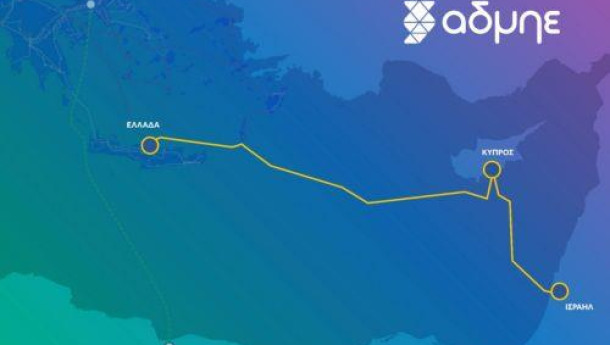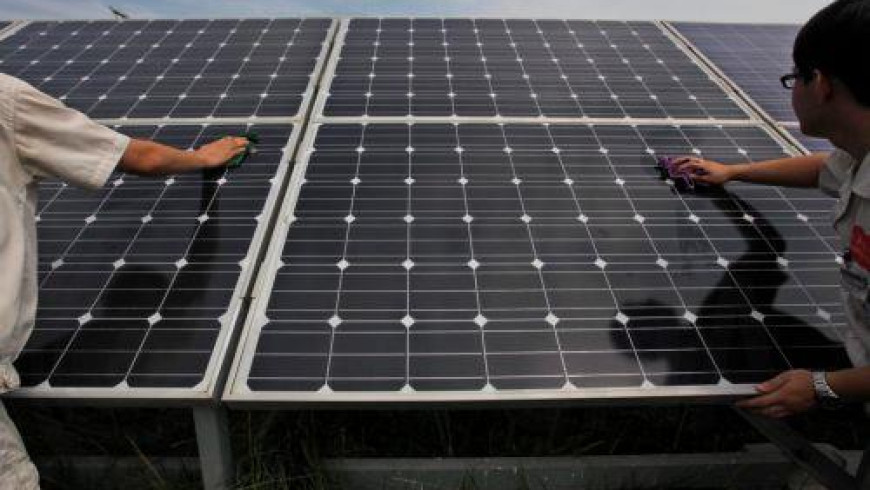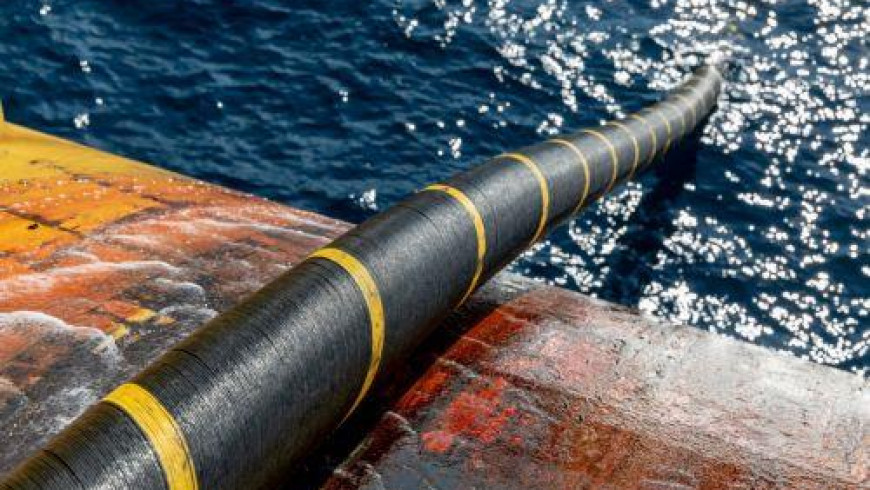
The operation of the Great Sea interconnector, a subsea cable linking the electricity grids of Cyprus and Greece, with a construction cost of €1.9 billion, could yield an annual saving of €400 in electricity bills for an average household in Cyprus, Manousos Manousakis Chairman of the project promoter, the Independent Power Transmission Operator (IPTO) has told CNA.
Manousakis accompanied by IPTO officials presented on Tuesday to the Cypriot Minister of Energy, George Papanastasiou, and to technocrats of the Ministries of Energy and Finance an updated Cost and Benefit Analysis (CBA) carried out by the organisation at the request of the government of Cyprus, which is considering joining the project with an equity investment of €100 million.
On his part, Minister of Energy George Papanastasiou told CNA that the Ministry requested the complete study, carried out by Exergia and the National Metsovio Polytechnic, to be analysed by an independent advisory firm before Cyprus takes its final investment decision.
He said the Ministry will launch a tender for an advisory firm to evaluate the CBA and provide its own comments on the study carried out by the ITPO.
Speaking to CNA after the meeting, Manousakis said that the study examined two scenarios, one with the interconnection in place and one with no interconnection, which means Cyprus’ electricity grid will continue to operate in isolation.
“The result is that the Cypriot consumer, an average household consuming 5 megawatt hours per annum will have a cost saving of at least €400 in its annual electricity bills,” Manousakis said.
He furthermore noted that the consumer will be called to pay a charge between 2025 and 2029 totaling €150 which means €30 per annum to cover the interconnector’s construction cost.
“Therefore, we see that the consumer will recover the construction cost in the first year and will enjoy a benefit from year-one and €400 per year in the following years,” he said.
Replying to a question, Manousakis said the two countries’ Regulating Authorities should impose the charge on electricity bills from the beginning to cover the cost.
“What’s important is how much this cost is. When we speak of an average annual cost of €30 for a project that would yield annual savings of €400 absorbing the cost from the first year, I don’t think this would be a 'thorn' in our relationship with the Cyprus Electricity Regulating Authority (CERA),” he went on to say.
Furthermore, a press release issued by the ITP said that the CBA showed that the Cypriot consumers will save up to 30% per annum by 2030.
According to IPTO, the CBA examined the costs to install batteries to store the excess energy generated by renewables in Cyprus compared with the operation of the interconnector. The study showed, the IPTO said, that batteries would cost €4 billion in Capital Expenditure (CAPEX) compared with the cost of the interconnector which amount to €1.9 billion, whereas batteries would have higher cost in operational expenditure (OPEX).
Therefore, the IPTO said, the interconnector would yield a total social benefit in the region of €6 billion, thanks to the substitution of the fuel, the reduction of emission costs, exceeding the interconnector’s cost.
“This means the interconnector’s social benefit ratio is circa 19% more than double of an isolated (energy mix) development,” the IPTO added.













 3287.99
3287.99 1275.09
1275.09
